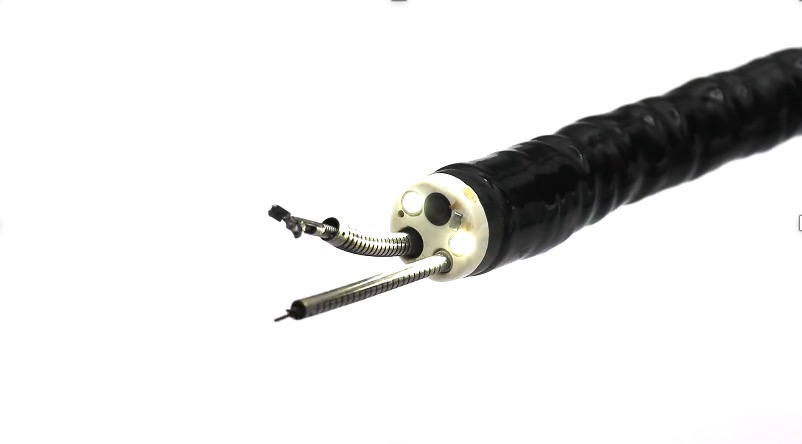Robert J. Webster III, Richard A. Schroeder Professor of Mechanical Engineering and associate professor of medicine and urology at Vanderbilt University, is part of a collaborative team that has received a more than $2.3 million grant to further develop technology that seeks to prevent patients from having invasive colectomies by using steerable robot-like instruments.

Under his second startup company, EndoTheia, Webster and members of his team at Vanderbilt have developed sheaths about the size of a needle that can bend and extend like tiny octopus tentacles. They help surgeons perform precise surgical procedures deep inside the human body without making any incisions in the skin.
“Our goal is to give surgeons two tiny robot hands at the tip of a colonoscope, so that they can remove tumors as soon as they find them,” said Webster. “This will spare patients from the pain and complicated risks of the major surgeries they have to undergo today.”
There are about 6.3 million colonoscopies a year, with roughly 50% finding lesions, according to Webster. He says the difficulty of removing a subset of these – those with challenging sizes, shapes, or locations – is due to the limited dexterity of conventional endoscopes.
“In my lab, we study how to use the mechanics of elastic materials to create tiny robot tentacles the size of a needle,” said Webster. “This grant will enable us to create much more detailed mechanics-based models of the tiny tubes within tubes that we use to create the robotic tentacles.”

He said the grant will also create four jobs for doctoral students at Vanderbilt as well as the University of Tennessee and the University of North Carolina at Chapel Hill, which are sharing the grant.
“This will help us to train the next generation of elite scientists and engineers,” said Webster.
Other Vanderbilt collaborators on the grant are Keith Obstein, professor of medicine; Duke Herrell, professor of urology; Nicholas Kavoussi, assistant professor of urology; Naren Nimmagadda, instructor, Department of Urology; Scott Webster, adjunct assistant professor of mechanical engineering; Joshua Gafford, adjunct assistant professor of mechanical engineering; Patrick Anderson, adjunct assistant professor of mechanical engineering; and Peter Connor, graduate student, mechanical engineering.
Contact: Lucas Johnson, 615-343-0137
lucas.l.johnson@vanderbilt.edu